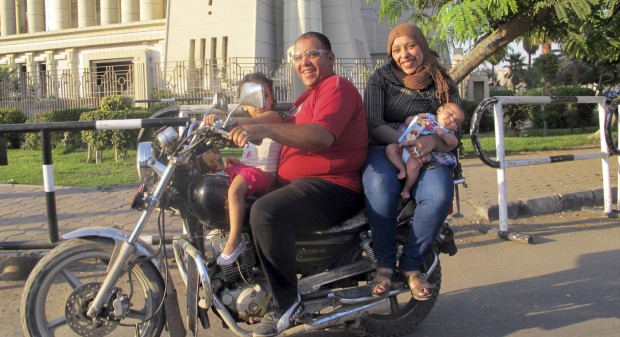‘I want a woman to be President,’ declared one of the ambulance drivers interviewed by Sherief Elkatsha for his film Cairo Drive. I don’t think he was joking. He was fed up with the struggle to do his job in the chaos of the Egyptian capital’s streets clogged by 14 million vehicles. Elkatsha’s feature documentary took five years to make and takes us from 2009 through the Tahrir Square uprising up to the most recent elections purely through looking at the traffic, the lifeblood of the city. He set out to give us voices, not tell a political story, and this lies behind many of the films shown in last weekend’s BBC Arabic Film Festival, held in the radio theatre at Broadcasting House.
The festival, now in its second year, is fast becoming a forum in which issues that are not openly discussed (usually because it is forbidden, sometimes under pain of death) can be addressed. The opening film (by Christine Garabedian) set the scene with a dramatic documentary from the United Arab Emirates. Pregnant and in Chains tells the story of those women who have fallen victim to the rigid laws on sex outside marriage. Often, they are foreign workers who have been the victims not of adultery but rape and either have to face having their babies in prison or take the risk of a backstreet abortion to escape imprisonment. Meanwhile, in Ibn Bnoot, the Egyptian director Mina Magdi imagines a world in which women are the dominant sex. ‘I wanted to shock men into realising that if the things happening to women were happening to men, they wouldn’t be able to bear it,’ says Magdi, who it should be said is a man.
The 20 films in the festival were selected from the hundreds submitted to the festival by directors from across the region, made from an Arab perspective but for a Western audience. Looking outwards gives them the freedom to explore those issues that could never be discussed inside the region. ‘These voices are usually suppressed,’ says Liliane Landor, controller of languages at the BBC World Service, and one of the judges who made the final selection.
None of the films has been commissioned, she explained, because in doing so the lives of the film-makers could be endangered. Instead the BBC had to wait for the film-makers to come forward. Many have risked imprisonment and have only been able to film by using iPhones and Skype. In A Day and a Button, for instance, Azza Hamwi took her camera out on to the streets of Damascus tucked into her handbag and covered with a lace handkerchief. It’s a bumpy ride, but it gives her the chance to move from streets that look quite normal to shots that show us the utter devastation wrought by the war. And because those shots are framed by the handkerchief we are taken right inside the experience of seeing them; we’re not looking at reportage but feel as if we are there, too, on the street.
Perhaps the most shocking of all the films is not as you might expect The Great Safae about the transvestite who has worked for years in Morocco as a domestic servant, close up with a family who has never realised she is in fact a man. The images from that film are surprising, but One Minute truly stuns. The Palestinian director Dina Naser told us that she made it with just two friends, filming inside her flat. The sounds came first, she said, then the words. For much of the film we are in darkness. It’s based on the true story of the bombing of Shujaiya in Gaza last summer. Salma is sheltering from the bombing and trying to soothe her young baby. The power is off. All we see is a baby’s leg lit up by a candle; all we hear is the regular squeaking of the baby’s cot as Salma swings it to and fro, interrupted by the explosions that get closer and closer. Words become meaningless; we know what has happened.






Comments